Life
Sign up for our newsletter
We summarize the week's scientific breakthroughs every Thursday.
-
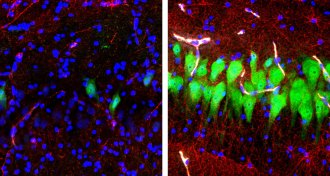 Neuroscience
NeuroscienceDead pig brains bathed in artificial fluid showed signs of cellular life
Four hours after pigs died, the animals’ brain cell activity was restored by a sophisticated artificial system.
-
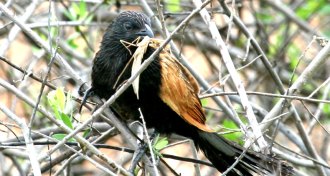 Animals
AnimalsParenting chores cut into how much these bird dads fool around
Frantic parenting demands after eggs hatch curtail male black coucals’ philandering excursions the most, a study finds.
By Susan Milius -
 Genetics
GeneticsSome people may have genes that hamper a drug’s HIV protection
Newly discovered genetic variants could explain why an anti-HIV medication doesn’t protect everyone.
-
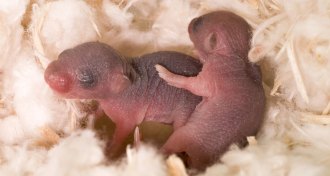 Genetics
GeneticsHow chemical exposure early in life is ‘like a ticking time bomb’
Some early life experiences can affect health, but only if unmasked by events in adulthood.
-
 Health & Medicine
Health & MedicineNASA’s Twins Study reveals effects of space on Scott Kelly’s health
Ten research groups studying the twin astronauts found long-term spaceflight can alter a person’s physiology and gene activity.
By Jeremy Rehm -
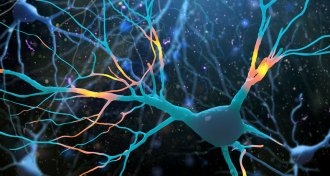 Health & Medicine
Health & MedicineKetamine cultivates new nerve cell connections in mice
In mice, ketamine prods nerve cells to connect, which may explain the hallucinogenic drug’s ability to ease depression.
-
 Climate
ClimateClimate change made the Arctic greener. Now parts of it are turning brown.
Arctic browning could have far-reaching consequences for people and wildlife, affecting habitat and atmospheric carbon uptake as well as increasing wildfire risk.
By Hannah Hoag -
 Neuroscience
NeuroscienceOur brains sculpt each other. So why do we study them in isolation?
Studying individual brains may not be the way to figure out the human mind, a social neuroscientist argues.
-
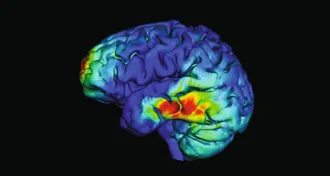 Health & Medicine
Health & MedicineWhen an older person’s brain waves are in sync, memory is boosted
A brain stimulation treatment that nudges older people’s brain waves into sync could lead to noninvasive therapies for dementia and other disorders.
-
 Genetics
GeneticsHere are 5 RNAs that are stepping out of DNA’s shadow
RNAs do a lot more than act as middlemen for protein building. Here are a few of the ways they affect your health and disease.
-
 Paleontology
PaleontologyPeruvian fossils yield a four-legged otterlike whale with hooves
A newly discovered species of ancient whale unearthed in Peru split time between land and sea.
-
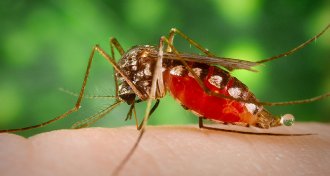 Health & Medicine
Health & MedicineTesting mosquito pee could help track the spread of diseases
A new way to monitor the viruses that wild mosquitoes are spreading passes its first outdoor test.
By Susan Milius